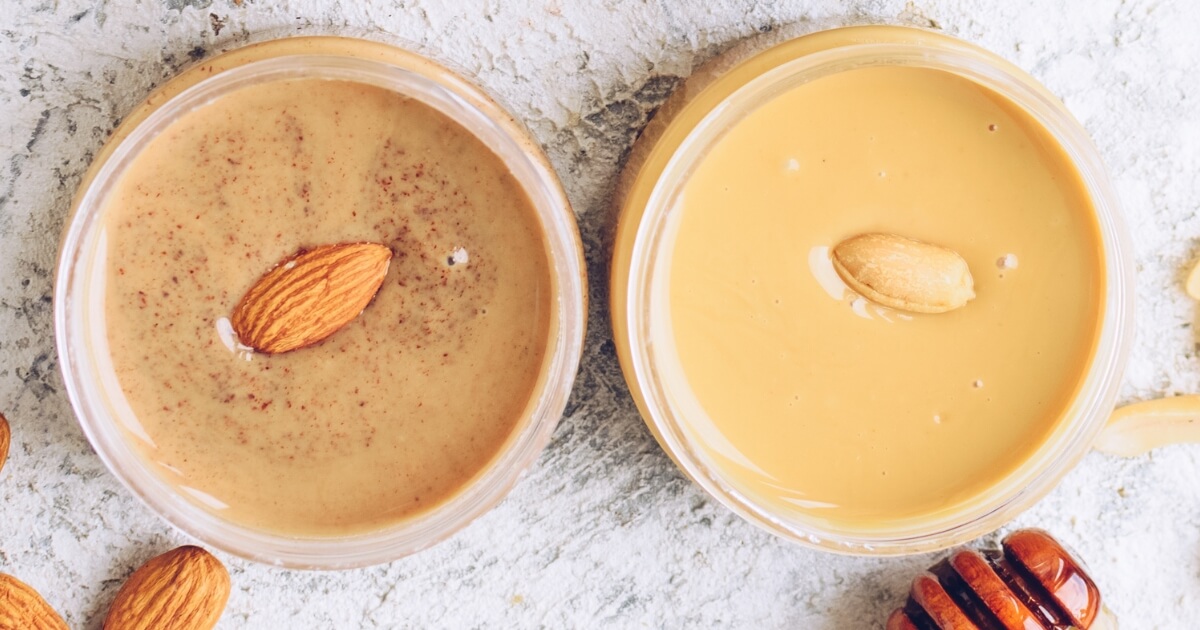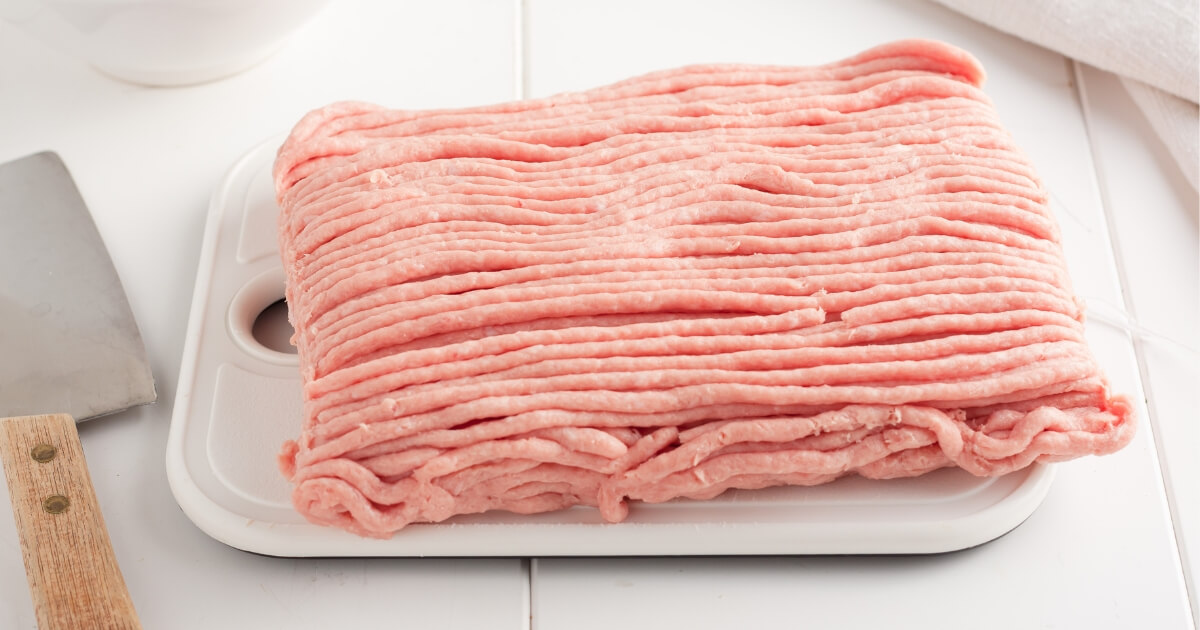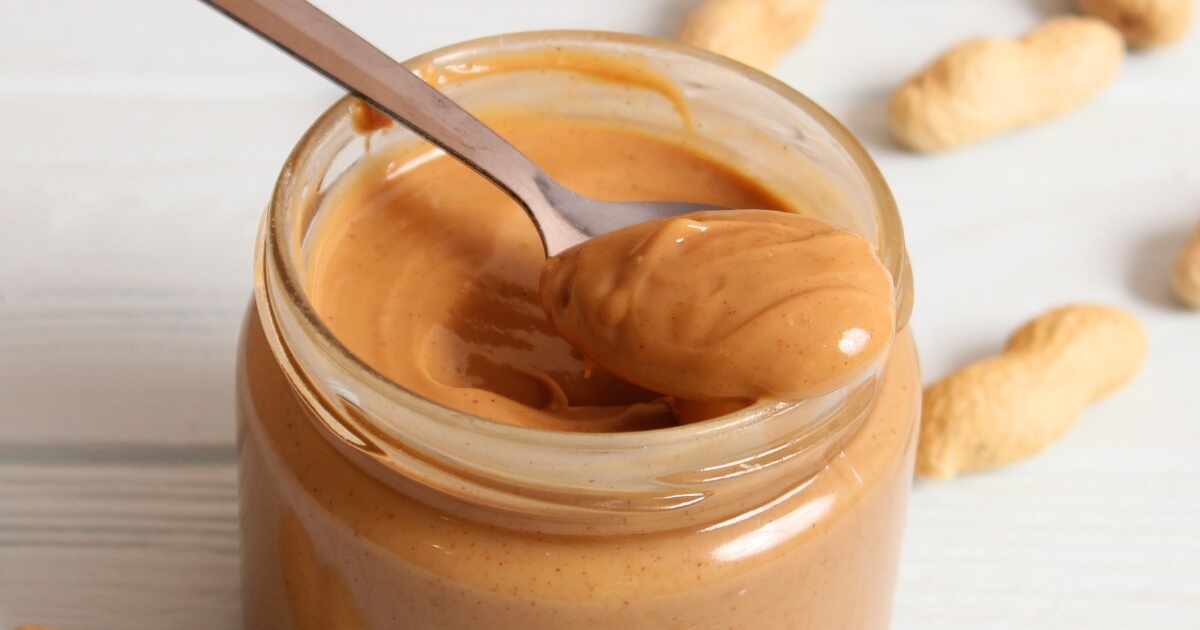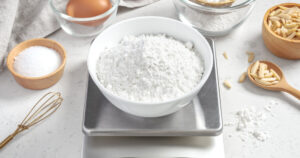If you’re lucky enough to have ripe strawberries in your fridge, you probably don’t want them to go bad before you can enjoy them. After all, they’re expensive even during the peak of the summer season.
Strawberries have the most flavor when served at room temperature, but it doesn’t take long before they start to show signs of spoilage on the countertop. Knowing when strawberries go bad will make the difference in how you prepare and store them.

Here is a guide to help you know how long strawberries last, so you can make the most of your strawberries any time of the year. But if you’re like me, you’ll probably end up eating them all before they have a chance to go bad anyway.
How Long Are Strawberries Good For?
With proper storage, fresh strawberries can stay fresh for up to a week. But ideally, you should eat fresh strawberries within a day or two of buying them. If you need to store them for longer, you can keep them in the refrigerator or freeze them to extend their shelf life.
There are many variables that determine how long a strawberry lasts, so use the following as a rough guide (FDA).
| Countertop | Refrigerator | Freezer | |
| Whole Strawberries With Stem | 2-3 Days | 5 – 7 Days | 8 – 12 Months |
| Cut Strawberries | 2 Hours | 3 – 4 Days | 8 – 12 Months |
How Long Do Strawberries Last In The Fridge?
Strawberries will last about seven days when stored in the refrigerator. This will help to slow down the aging process and give you an extra day or two compared to strawberries left on the countertop.
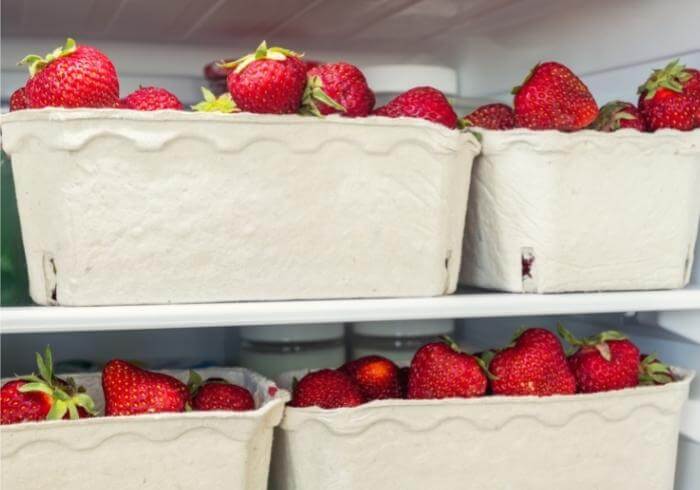
However, once fresh strawberries have peaked in ripeness, the berries will start to lose their flavor and texture no matter what you do. Here are a few ways for what to do with old strawberries.
The ideal way to store them in the fridge is with the stems on, in a single layer, and on paper towels to keep them dry. This will help prevent the delicate berries from being crushed and help remove any excess moisture from the berries.
Do Strawberries Have To Be Refrigerated?
Strawberries do not have to be refrigerated, but you should try to as soon as possible to help keep them fresher for longer.
You do not need to wash your strawberries before putting them in the refrigerator, but it is a good idea to remove damaged berries to help prevent soiling the others.
If there are any signs of moldy strawberries, you should discard strawberries that are moldy and the whole original container to prevent foodborne illness and contamination of other fruits and veggies in your refrigerator.
What Affects The Shelf Life Of Strawberries?
Many things can affect how long your strawberries last. The biggest factors that lead to spoilage are handling and temperature, as seen below.
Handling
Strawberries are very delicate. They crush and bruise easily, exposing excess moisture where bacteria and mold can grow quickly. Check them for bruising, soft spots, and mold when you get them home.

Think about the journey a strawberry has been on to get into your kitchen. They’ve been picked, sorted, packaged, shipped, and tossed on a shelf at the grocery store, tossed in your cart, and taken home.
Not everyone is as concerned about strawberries well being as you are, so there is likely to be some rough handling along the way.
Of course, if you’re picking them yourself, you can take much more caution. But I’ve often seen people picking and then tossing them into their bucket or basket. Don’t do that. Carefully place them to maximize their shelf life.
Storage Temperature
You should store strawberries between 32°F to 36°F (0°C to 2°C) at home. You’ll want to place them in the lower part of your refrigerator unless your crisper drawer has its own temperature gauge.
The downside of using a refrigerator is that it won’t be able to keep the humidity relatively high to help prevent your strawberries from drying out. So it’s important to keep them in an airtight container where the moisture from the berries can’t escape.
Why does temperature matter so much? When strawberries have been picked, the decomposition process starts. During this process, they release gases that accelerate the decomposition. When you refrigerate strawberries, you slow down the release of gases and help prolong the life of your strawberries.
Condition Of Your Strawberries
If your strawberries are nearing their demise for consumption, it’s best to use them right away. Don’t try to freeze strawberries, thinking it will help the inevitable. It won’t.
Sometimes you just have to forget that fresh bowl of strawberries or as a topping for cereal. Before you have to toss them, consider adding them to a smoothie or cooked down into a quick dessert topping.
If you happen to find an overripe strawberry, remove it. Make sure that all of your strawberries are in the same condition. Just one bad strawberry can start a chain reaction causing the whole bunch to spoil.
Strawberry Shelf Life FAQs
Are Overripe Strawberries Safe To Eat?
Overripe strawberries are sometimes safe to eat, even if the flavor and texture may not be as delicious as a fresh strawberry. But remember that overripe strawberries may not be safe to consume as bacteria and molds may have already set in. It’s a hard judgment call if you want to use them in a recipe, but it’s often best to discard them.
Can You Leave Strawberries Out?
Yes, you can leave strawberries out on the counter. In fact, the sugars in strawberries will taste better if they have come to room temperature. However, there will be a shorter shelf life, mold spores, and potential pests like fruit flies.
Is It Okay To Freeze Strawberries?
Yes, freezing strawberries is okay if you don’t plan to use them immediately. Despite fresh strawberries being firm and tasting better, store-bought frozen berries retain more nutritional value.
Final Thoughts
Strawberries are best eaten within a couple days of purchasing, but they will keep for up to a week if stored properly.
When storing strawberries, remove any bruised or overripe berries and store them in a shallow container in the fridge.
When you’re ready to eat them, allow the strawberries to come to room temperature for the best flavor. And don’t forget to enjoy them in all sorts of strawberry recipes!
Do you have some strawberries that you’re unsure about? Find out how to tell if strawberries are bad and all the signs that say to discard them.

